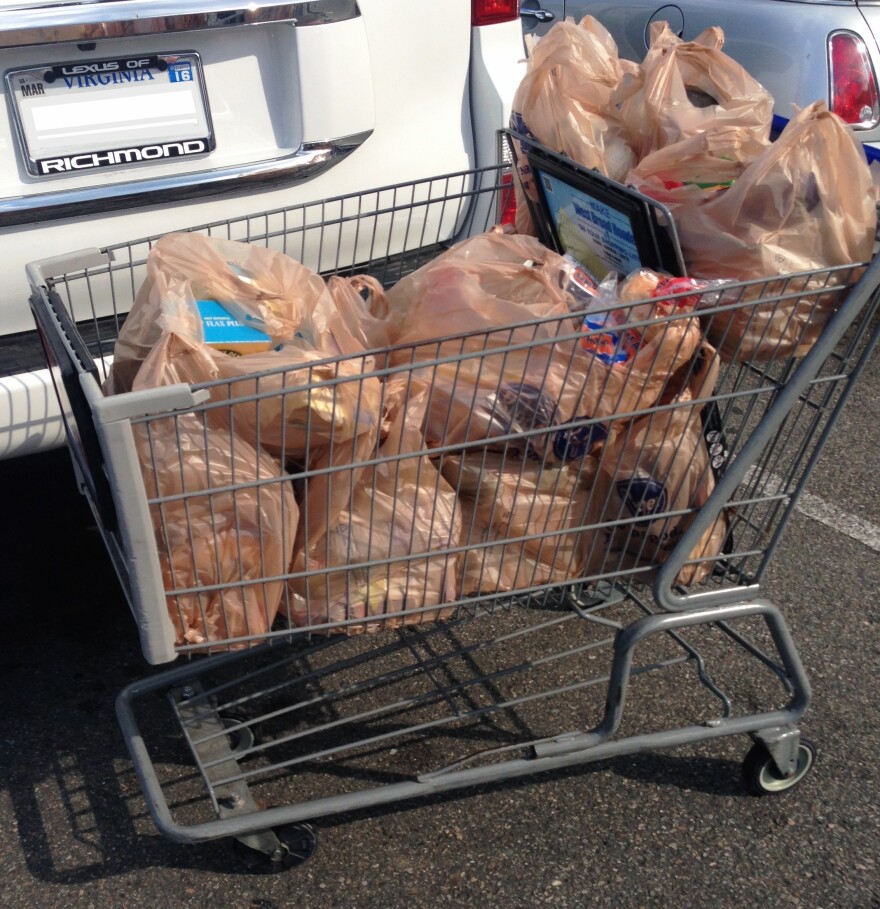A year after Tennessee lawmakers forbade cities like Memphis and Nashville from enacting local bans on plastic grocery bags, a new Republican-led proposal, in both the state House and Senate, seeks to ban them across the state.
The legislation would prohibit restaurants, retail and grocery stores statewide from handing out free, single-use plastic or paper bags. Establishments could sell or provide free “reusable” bags, defined as having at least 125 uses per bag.
The bill’s Senate sponsor, Knoxville Republican Richard Briggs, likens the proposal to straightforward environmental protection—notably for bodies of water like the Tennessee River, recently found to be one of the most plastic-polluted waterways in the world.
“The plastic bags will not fix the whole problem, but it’s the first step in recognizing that we need to do something,” Briggs says, while acknowledging that weaning people off a multi-generational convenience will be an uphill battle.
Briggs was among state lawmakers who voted last year to prohibit cities from making their own regulations around single-use plastics. Before the law went into effect, some Memphis officials supported implementing a local tax on plastic bags at the grocer’s check-out. Others later called for a blanket ban on the bags.
Briggs argued that statewide regulation of the bags, rather than patchwork rules across cities and counties, makes compliance easier for businesses.
While that’s true, says Rob Ikard, president of the Tennessee Grocers and Convenience Store Association, the roughly 300 retailers and suppliers he represents are split on the ban.
“Some grocers might not appreciate having that option taken away from them,” Ikard says. “But, that being said, there are others who think that this is a trend towards the future, and they’re willing to jump on board.”
Ikard noted that the supermarket chain Kroger will completely phase out plastic bags in its nearly 3,000 stores over the next five years. Other chains, such as Aldi, already sell bags at checkout.
Rick James, head of the Cash Saver grocery chain in Memphis, says an immediate ban on plastic bags could have the biggest impact on money-strapped shoppers. For them, reusable bags have financial and logistical burdens, like buying them or keeping them on hand.
“We have a lot of customers that because we're in lower-income neighborhoods, they walk, they walk to the bus stop, or they walk from home, and so they're counting on a bag that they can carry,” he says.
Even people with their own transportation expect complimentary grocery bags, James says. Changing those habits would take adjustment and require a new economic model for grocers who chose to provide reusable bags free of charge.
He says it costs grocers just “a couple of cents” to provide traditional plastic bags for customers. The reusable kind are around 80 cents per bag.
“There are still questions,” he says. “We’re not opposed to the idea [of a ban] in some form that we can make our customers comfortable with the approach.”
Industry groups such as the American Progressive Bag Alliance spoke out against Memphis’ proposed plastic bag fee last year. The group has argued that people actually use single-use plastic bags multiple times and that the bags are recyclable (at the stores they come from, not in your home recycle bin).
Briggs says he crafted the measure with support from Tennessee’s grocery industry, also noting Kroger’s independent push to eliminate plastic bags.
He’s heard from constituents concerned that the policy is government overreach, but Briggs counters that officials have a duty to act.
Plastic bags break down into microplastics or “tiny beads” of plastics, which are difficult to extract from water sources. Scientists say microplastics pose health risks to both humans and ecosystems.
“If you love the outdoors, you love nature, and you think that Tennessee is a beautiful place, I really cannot see any justification for saying that it’s okay to have these single-use plastics that we see piled up against fences…in our rivers,” Briggs says. “It won’t get any better by doing nothing, it will only get worse.”


